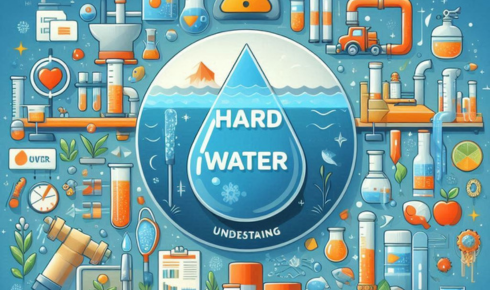Seattle is known for its lush green landscapes and clean environment, but many residents often wonder about the quality of their drinking water. Questions about Seattle hard water, water hardness Seattle, and Seattle tap water frequently arise, especially for homeowners concerned about mineral buildup and appliance longevity. This article will provide a complete overview of Seattle water quality, discuss the effects of water hardness Seattle, and explain the importance of water testing Seattle.
Is Seattle’s Water Hard or Soft?
One of the first questions people ask is whether Seattle tap water is hard or soft. The answer: Seattle’s water is naturally soft. Unlike other regions that have high levels of calcium and magnesium in their water supply, Seattle sources its water from the Cedar and Tolt River watersheds, which contain minimal mineral content.
Water Hardness in Seattle
Water hardness refers to the concentration of dissolved minerals, mainly calcium and magnesium, in water. The levels of water hardness Seattle are measured in grains per gallon (gpg) or milligrams per liter (mg/L).
- Soft Water: 0–3 gpg
- Moderately Hard Water: 3–7 gpg
- Hard Water: 7–10 gpg
- Very Hard Water: Over 10 gpg
Seattle’s water typically falls below 1 gpg, which classifies it as soft. This means that residents don’t have to worry about scale buildup in pipes, appliances, and water heaters like those living in hard water regions.
Seattle Water Quality: Is It Safe to Drink?
Seattle is known for having some of the highest-quality drinking water in the country. The Seattle water quality is carefully monitored by Seattle Public Utilities (SPU) to ensure it meets or exceeds federal and state safety standards.
Key Aspects of Seattle’s Water Quality
- Minimal Contaminants – The city’s water undergoes rigorous filtration and disinfection to remove bacteria, viruses, and other pollutants.
- Low Chlorine Levels – Chlorine is added to disinfect the water, but at levels that are safe for drinking.
- Fluoride Addition – Seattle adds fluoride to its water to promote dental health.
- pH Balance – The water is slightly alkaline to prevent pipe corrosion.
Benefits of Soft Water in Seattle
Since Seattle’s water is naturally soft, residents enjoy several benefits:
- Better for Skin and Hair – Soft water helps prevent dryness and irritation.
- No Soap Scum – Soap and detergent lather more easily, reducing residue in showers and sinks.
- Extended Appliance Lifespan – Dishwashers, washing machines, and water heaters last longer with soft water.
- Improved Taste – Many people find that soft water tastes better due to the absence of heavy minerals.
Why Water Testing in Seattle is Important
Even though Seattle has high water quality, it’s still a good idea to consider water testing Seattle for additional peace of mind.
Reasons to Test Your Water
- Older Plumbing – Homes with aging pipes may experience lead contamination.
- Well Water Users – If you rely on private well water, regular testing is essential to detect bacteria and nitrates.
- Personal Health Concerns – Those with allergies or sensitivities may want to test for specific contaminants.
- Taste and Odor Issues – If your water smells or tastes odd, testing can identify the cause.
How to Conduct Water Testing in Seattle
There are multiple ways to test your water quality in Seattle:
- DIY Testing Kits – Available online or in stores, these kits can detect pH levels, chlorine, lead, and hardness.
- Professional Lab Testing – For a detailed analysis, hiring a certified water testing lab is recommended.
- Seattle Public Utilities Testing – The city offers water quality reports and testing services for residents.
Conclusion
Seattle residents enjoy naturally soft and high-quality drinking water, making Seattle tap water one of the best in the nation. While Seattle hard water isn’t a concern, regular water testing Seattle can help ensure your home’s water remains safe. Understanding Seattle water quality allows you to make informed decisions about filtration, plumbing, and overall health.



